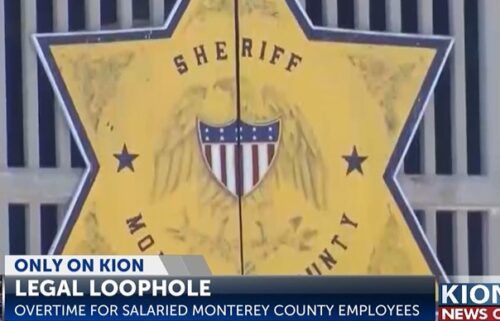How the banking crisis clipped the hawkish Fed’s wings
By Allison Morrow, CNN
In congressional testimony earlier this month, Fed Chairman Jerome Powell told lawmakers that the central bank would likely need to raise interest rates higher and possibly faster than previously expected.
The message was clear: Buckle up, America — we are going to keep raising rates and get inflation down, come hell or high water.
Just three days later, the flood came. Silicon Valley Bank collapsed, followed by Signature Bank, stirring fears of a 2008-like financial calamity. US authorities, including the Fed, were forced to step in to prevent panic from spreading.
Today, the Fed raised interest rates by a quarter-point, as expected. But Powell had a new message: Look, America, we’re not necessarily going to keep raising rates.
Here’s the deal: In his first public statements since SVB fell, Powell strongly signaled that the Fed’s yearlong interest-rate-hiking regime will likely come to an end soon.
“We no longer state that we anticipate that ongoing rate increases will be appropriate to quell inflation,” Powell said. “Instead, we now anticipate some additional policy firming may be appropriate.”
And if you’re new to parsing Fed-speak, here’s a clue: The emphasis is on the “will” versus the “may.”
Tired: “Ongoing rate increases will be appropriate”
Wired: “Some additional policy firming may be appropriate.”
In other words: The rate hikes Wall Street has been dreading are no longer guaranteed because Wall Street now has other problems.
“The end of the rate hiking cycle is in sight,” said Jamie Cox, managing partner at Harris Financial Group. “The Fed is trying to navigate the very narrow path between defeating inflation and destroying the economy with blunt force rate hikes — even they now know the latter is a very real risk.”
The risk here is that the banking crisis — or “recent events in the banking system,” per Powell, who studiously avoided the c-word — will wind up doing the Fed’s job for it.
When banks are financially strained, as many are now, they tend to take on less risk. That means fewer loans to regular people and businesses, which in turn slows economic growth, and — ta-da! — brings down inflation.
How’d Wall Street take the news?
Stocks initially rose on the Fed’s quarter-point hike. But the mood on Wall Street turned sour in response to both Powell’s comments and remarks from Treasury Secretary Janet Yellen, who was testifying before Congress at the same time.
Near the end of his news conference, Powell reiterated the Fed’s commitment to bringing down inflation and then dropped this: “Rate cuts are not in our base case…so that’s all I have to say.”
Then he dropped the mic (figuratively speaking) and walked out.
“Powell is trying to have it both ways,” said Joe Gilbert, portfolio manager at Integrity Asset Management, per Bloomberg. “This ultimately may be the last rate hike this year, but Powell has to make the market believe that it isn’t because that would loosen financial conditions too much.”
Meanwhile, Wall Street also appeared to react negatively to Yellen, who was across town telling lawmakers that officials were not considering expanding bank deposit guarantees beyond the FDIC’s current $250,000 limit.
All three major indexes finished the day in the red.
Enjoying Nightcap? Sign up and you’ll get all of this, plus some other funny stuff we liked on the internet, in your inbox every night. (OK, most nights — we believe in a four-day work week around here.)
The-CNN-Wire
™ & © 2023 Cable News Network, Inc., a Warner Bros. Discovery Company. All rights reserved.


